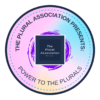DID vs OSDD
Dissociative Identity Disorder (DID) and Otherwise Specified Dissociative Disorders (OSDD) are both diagnoses that are in the DSM-V. But what is the difference? Today we look at the differences and the questions you can ask yourself.
Read our updated article about OSDD by clicking here.
Table of Contents
DSM-5:
3 Requirement Questions for Dissociative Identity Disorder:
1. Do you have 2 or more distinct identities or personality states that are present, each with its own relatively enduring pattern of perceiving, relating to and thinking about the environment and self?
2. Do you experience amnesia, defined as gaps in the recall of everyday events, important personal information and/or traumatic events?
3. Are you distressed by the disorder or do you have trouble functioning in one or more major life areas because of the disorder?
2 Control Questions:
4. Is the disturbance caused by cultural or religious practice? – If so, it’s probably not DID/OSDD.
5. Is the disturbance caused by direct physiological effects of a substance (such as blackouts or chaotic behavior during alcohol intoxication) or a general medical condition? (such as complex partial seizures) – If so, it’s probably not DID/OSDD.
As these are only questions, we ask that you seek a professional for a diagnosis if you need a diagnosis for disability, legal or insurance purposes. We understand that getting a diagnosis can be very hard and can take a very long time, these questions can help you figure out which best describes your experiences as a whole. For those trying to get a DID diagnosis it can be very hard to not only find someone who believes that DID is areal disorder yet, it is even harder to find someone who is willing to diagnose it. It can take 6 to 8 years to get a correct diagnosis for DID. You can find a specialist here: http://www.isst-d.org/default.asp?contentID=18
Learn more about OSDD by watching our video that we created together with The Alexandrite System.
For a while now, many people have had their DID diagnosis revoked and changed into an OSDD diagnosis if there was not full amnesia. This goes against what the DSM-V says. They clearly state amnesia is for either everyday (not every day) events, important personal information and/or traumatic events. Many people with DID have made progress, experienced healing and had their diagnosis changed from DID to OSDD. As everyone is at a different stage of healing and acceptance it can be very hard for some professionals to see the disorder in someone’s personal experience.
Recently the ICD-11 was released yet, it won’t be implemented until 2022.
This is another manual on what disorders exists.
DID is still in there. OSDD was removed and replaced with partial dissociative disorder amongst others. You can find it here: https://icd.who.int/browse11/l-m/en…
We hope that this information helps you. Sarah Clark and Ashton Parker will be sharing our own personal experiences with being diagnosed in the comments in the Power to the Plural Facebook Group and will be glad to answer any questions you may have.
The Plural Association NonProfit depends on community support. Please consider donating towards the empowerment of plurals, so we can continue our important work. Donations can be made here: www.powertotheplurals.com/donate
Want to know if you are Plural? Read this article next. <– click
About the authors
The Stronghold System are the proud volunteer founders & CEO of The Plural Association Nonprofit. They are from the Netherlands and reside in a 30-something-year-old body, are nonbinary, parents of an amazing child & 3 cats. They got diagnosed with Dissociative Identity Disorder over 10 years ago & also self ID as Plural.
- Strongholdhttps://powertotheplurals.com/author/stronghold/
- Strongholdhttps://powertotheplurals.com/author/stronghold/
- Strongholdhttps://powertotheplurals.com/author/stronghold/
- Strongholdhttps://powertotheplurals.com/author/stronghold/


Hi. My name is Shirley J. Davis and I live with DID. I am also a writer and own a site here on WordPress, DID in a Nutshell. I would love to help. I’m not a professional though. Just thought I’d offer. Thanks
Thank you for your comment Shirley. We have enough people working on the project for now. But feel free to join our FB group Power to the Plurals to share your personal input if you like! 🙂
I got what you intend, appreciate it for putting up.
Thank you so much!
There is noticeably a bundle to know about this. I consider you made some good points in features also.
It’s actually a great and helpful piece of info. I am glad that you shared this useful information with us. Please keep us up to date like this. Thanks for sharing.